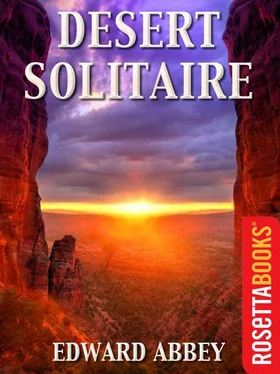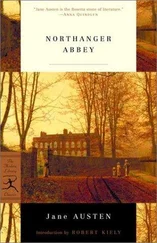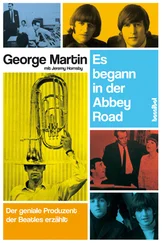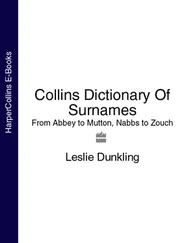Abbey, Edward - Desert Solitaire (Edward Abbey Series )
Здесь есть возможность читать онлайн «Abbey, Edward - Desert Solitaire (Edward Abbey Series )» — ознакомительный отрывок электронной книги совершенно бесплатно, а после прочтения отрывка купить полную версию. В некоторых случаях можно слушать аудио, скачать через торрент в формате fb2 и присутствует краткое содержание. Год выпуска: 2011, Издательство: RosettaBooks, Жанр: Старинная литература, на английском языке. Описание произведения, (предисловие) а так же отзывы посетителей доступны на портале библиотеки ЛибКат.
- Название:Desert Solitaire (Edward Abbey Series )
- Автор:
- Издательство:RosettaBooks
- Жанр:
- Год:2011
- ISBN:нет данных
- Рейтинг книги:4 / 5. Голосов: 1
-
Избранное:Добавить в избранное
- Отзывы:
-
Ваша оценка:
- 80
- 1
- 2
- 3
- 4
- 5
Desert Solitaire (Edward Abbey Series ): краткое содержание, описание и аннотация
Предлагаем к чтению аннотацию, описание, краткое содержание или предисловие (зависит от того, что написал сам автор книги «Desert Solitaire (Edward Abbey Series )»). Если вы не нашли необходимую информацию о книге — напишите в комментариях, мы постараемся отыскать её.
Desert Solitaire (Edward Abbey Series ) — читать онлайн ознакомительный отрывок
Ниже представлен текст книги, разбитый по страницам. Система сохранения места последней прочитанной страницы, позволяет с удобством читать онлайн бесплатно книгу «Desert Solitaire (Edward Abbey Series )», без необходимости каждый раз заново искать на чём Вы остановились. Поставьте закладку, и сможете в любой момент перейти на страницу, на которой закончили чтение.
Интервал:
Закладка:
(1) No more cars in national parks. Let the people walk. Or ride horses, bicycles, mules, wild pigs—anything—but keep the automobiles and the motorcycles and all their motorized relatives out. We have agreed not to drive our automobiles into cathedrals, concert halls, art museums, legislative assemblies, private bedrooms and the other sanctums of our culture; we should treat our national parks with the same deference, for they, too, are holy places. An increasingly pagan and hedonistic people (thank God!), we are learning finally that the forests and mountains and desert canyons are holier than our churches. Therefore let us behave accordingly.
Consider a concrete example and what could be done with it: Yosemite Valley in Yosemite National Park. At present a dusty milling confusion of motor vehicles and ponderous camping machinery, it could be returned to relative beauty and order by the simple expedient of requiring all visitors, at the park entrance, to lock up their automobiles and continue their tour on the seats of good workable bicycles supplied free of charge by the United States Government.
Let our people travel light and free on their bicycles—nothing on the back but a shirt, nothing tied to the bike but a slicker, in case of rain. Their bedrolls, their backpacks, their tents, their food and cooking kits will be trucked in for them, free of charge, to the campground of their choice in the Valley, by the Park Service. (Why not? The roads will still be there.) Once in the Valley they will find the concessioners waiting, ready to supply whatever needs might have been overlooked, or to furnish rooms and meals for those who don’t want to camp out.
The same thing could be done at Grand Canyon or at Yellowstone or at any of our other shrines to the out-of-doors. There is no compelling reason, for example, why tourists need to drive their automobiles to the very brink of the Grand Canyon’s south rim. They could walk that last mile. Better yet, the Park Service should build an enormous parking lot about ten miles south of Grand Canyon Village and another east of Desert View. At those points, as at Yosemite, our people could emerge from their steaming shells of steel and glass and climb upon horses or bicycles for the final leg of the journey. On the rim, as at present, the hotels and restaurants will remain to serve the physical needs of the park visitors. Trips along the rim would also be made on foot, on horseback, or—utilizing the paved road which already exists—on bicycles. For those willing to go all the way from one parking lot to the other, a distance of some sixty or seventy miles, we might provide bus service back to their cars, a service which would at the same time effect a convenient exchange of bicycles and/or horses between the two terminals.
What about children? What about the aged and infirm? Frankly, we need waste little sympathy on these two pressure groups. Children too small to ride bicycles and too heavy to be borne on their parents’ backs need only wait a few years—if they are not run over by automobiles they will grow into a lifetime of joyous adventure, if we save the parks and leave them unimpaired for the enjoyment of future generations . The aged merit even less sympathy: after all they had the opportunity to see the country when it was still relatively unspoiled. However, we’ll stretch a point for those too old or too sickly to mount a bicycle and let them ride the shuttle buses.
I can foresee complaints. The motorized tourists, reluctant to give up the old ways, will complain that they can’t see enough without their automobiles to bear them swiftly (traffic permitting) through the parks. But this is nonsense. A man on foot, on horseback or on a bicycle will see more, feel more, enjoy more in one mile than the motorized tourists can in a hundred miles. Better to idle through one park in two weeks than try to race through a dozen in the same amount of time. Those who are familiar with both modes of travel know from experience that this is true; the rest have only to make the experiment to discover the same truth for themselves.
They will complain of physical hardship, these sons of the pioneers. Not for long; once they rediscover the pleasures of actually operating their own limbs and senses in a varied, spontaneous, voluntary style, they will complain instead of crawling back into a car; they may even object to returning to desk and office and that dry-wall box on Mossy Brook Circle. The fires of revolt may be kindled—which means hope for us all.
(2) No more new roads in national parks. After banning private automobiles the second step should be easy. Where paved roads are already in existence they will be reserved for the bicycles and essential in-park services, such as shuttle buses, the trucking of camping gear and concessioners’ supplies. Where dirt roads already exist they too will be reserved for nonmotorized traffic. Plans for new roads can be discarded and in their place a program of trail-building begun, badly needed in some of the parks and in many of the national monuments. In mountainous areas it may be desirable to build emergency shelters along the trails and bike roads; in desert regions a water supply might have to be provided at certain points—wells drilled and handpumps installed if feasible.
Once people are liberated from the confines of automobiles there will be a greatly increased interest in hiking, exploring, and back-country packtrips. Fortunately the parks, by the mere elimination of motor traffic, will come to seem far bigger than they are now—there will be more room for more persons, an astonishing expansion of space. This follows from the interesting fact that a motorized vehicle, when not at rest, requires a volume of space far out of proportion to its size. To illustrate: imagine a lake approximately ten miles long and on the average one mile wide. A single motorboat could easily circumnavigate the lake in an hour; ten motorboats would begin to crowd it; twenty or thirty, all in operation, would dominate the lake to the exclusion of any other form of activity; and fifty would create the hazards, confusion, and turmoil that make pleasure impossible. Suppose we banned motorboats and allowed only canoes and rowboats; we would see at once that the lake seemed ten or perhaps a hundred times bigger. The same thing holds true, to an even greater degree, for the automobile. Distance and space are functions of speed and time. Without expending a single dollar from the United States Treasury we could, if we wanted to, multiply the area of our national parks tenfold or a hundredfold—simply by banning the private automobile. The next generation, all 250 million of them, would be grateful to us.
(3) Put the park rangers to work. Lazy scheming loafers, they’ve wasted too many years selling tickets at toll booths and sitting behind desks filling out charts and tables in the vain effort to appease the mania for statistics which torments the Washington office. Put them to work. They’re supposed to be rangers—make the bums range; kick them out of those overheated air-conditioned offices, yank them out of those overstuffed patrol cars, and drive them out on the trails where they should be, leading the dudes over hill and dale, safely into and back out of the wilderness. It won’t hurt them to work off a little office fat; it’ll do them good, help take their minds off each other’s wives, and give them a chance to get out of reach of the boss—a blessing for all concerned.
They will be needed on the trail. Once we outlaw the motors and stop the road-building and force the multitudes back on their feet, the people will need leaders. A venturesome minority will always be eager to set off on their own, and no obstacles should be placed in their path; let them take risks, for Godsake, let them get lost, sunburnt, stranded, drowned, eaten by bears, buried alive under avalanches—that is the right and privilege of any free American. But the rest, the majority, most of them new to the out-of-doors, will need and welcome assistance, instruction and guidance. Many will not know how to saddle a horse, read a topographical map, follow a trail over slickrock, memorize landmarks, build a fire in rain, treat snakebite, rappel down a cliff, glissade down a glacier, read a compass, find water under sand, load a burro, splint a broken bone, bury a body, patch a rubber boat, portage a waterfall, survive a blizzard, avoid lightning, cook a porcupine, comfort a girl during a thunderstorm, predict the weather, dodge falling rock, climb out of a box canyon, or pour piss out of a boot. Park rangers know these things, or should know them, or used to know them and can relearn; they will be needed. In addition to this sort of practical guide service the ranger will also be a bit of a naturalist, able to edify the party in his charge with the natural and human history of the area, in detail and in broad outline.
Читать дальшеИнтервал:
Закладка:
Похожие книги на «Desert Solitaire (Edward Abbey Series )»
Представляем Вашему вниманию похожие книги на «Desert Solitaire (Edward Abbey Series )» списком для выбора. Мы отобрали схожую по названию и смыслу литературу в надежде предоставить читателям больше вариантов отыскать новые, интересные, ещё непрочитанные произведения.
Обсуждение, отзывы о книге «Desert Solitaire (Edward Abbey Series )» и просто собственные мнения читателей. Оставьте ваши комментарии, напишите, что Вы думаете о произведении, его смысле или главных героях. Укажите что конкретно понравилось, а что нет, и почему Вы так считаете.












